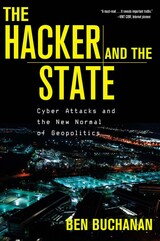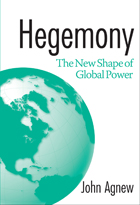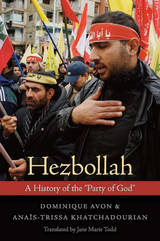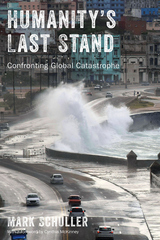6 start with H start with H

“A must-read…It reveals important truths.”
—Vint Cerf, Internet pioneer
“One of the finest books on information security published so far in this century—easily accessible, tightly argued, superbly well-sourced, intimidatingly perceptive.”
—Thomas Rid, author of Active Measures
Cyber attacks are less destructive than we thought they would be—but they are more pervasive, and much harder to prevent. With little fanfare and only occasional scrutiny, they target our banks, our tech and health systems, our democracy, and impact every aspect of our lives. Packed with insider information based on interviews with key players in defense and cyber security, declassified files, and forensic analysis of company reports, The Hacker and the State explores the real geopolitical competition of the digital age and reveals little-known details of how China, Russia, North Korea, Britain, and the United States hack one another in a relentless struggle for dominance. It moves deftly from underseas cable taps to underground nuclear sabotage, from blackouts and data breaches to election interference and billion-dollar heists.
Ben Buchanan brings to life this continuous cycle of espionage and deception, attack and counterattack, destabilization and retaliation. Quietly, insidiously, cyber attacks have reshaped our national-security priorities and transformed spycraft and statecraft. The United States and its allies can no longer dominate the way they once did. From now on, the nation that hacks best will triumph.
“A helpful reminder…of the sheer diligence and seriousness of purpose exhibited by the Russians in their mission.”
—Jonathan Freedland, New York Review of Books
“The best examination I have read of how increasingly dramatic developments in cyberspace are defining the ‘new normal’ of geopolitics in the digital age.”
—General David Petraeus, former Director of the CIA
“Fundamentally changes the way we think about cyber operations from ‘war’ to something of significant import that is not war—what Buchanan refers to as ‘real geopolitical competition.’”
—Richard Harknett, former Scholar-in-Residence at United States Cyber Command

Schwartzstein has visited ravaged Iraqi towns where ISIS used drought as a recruiting tool and weapon of terror. In Bangladesh, he has interviewed farmers-turned-pirates who can no longer make a living off the land and instead make it off bloody ransoms. Security forces have blocked him from a dam being constructed along the Nile that has brought Egypt and Ethiopia to the brink of war. And he has heard the fear in the voices of women from around the world who say their husbands’ tempers flare when the temperature ticks up.
In The Heat and the Fury, he not only puts readers on the frontlines of climate violence but gives us the context to make sense of seemingly senseless acts. As Schwartzstein deftly shows, climate change is often the spark that ignites long smoldering fires, the extra shove that pushes individuals, communities, and even nations over the line between frustration and lethal fury. What, he asks, can ratchet down the aggression? Can cooperation on climate actually become a salve to heal old wounds?
There are no easy answers on a planet that is fast becoming a powder keg. But Schwartzstein’s incisive analysis of geopolitics, unparalleled on-the-ground reporting, and keen sense of human nature offer the clearest picture to date of the violence that threatens us all.


For thirty years, Hezbollah has played a pivotal role in Lebanese and global politics. That visibility has invited Hezbollah’s lionization and vilification by outside observers, and at the same time has prevented a clear-eyed view of Hezbollah’s place in the history of the Middle East and its future course of action. Dominique Avon and Anaïs-Trissa Khatchadourian provide here a nonpartisan account which offers insights into Hezbollah that Western media have missed or misunderstood.
Now part of the Lebanese government, Hezbollah nevertheless remains in tension with both the transnational Shiite community and a religiously diverse Lebanon. Calling for an Islamic regime would risk losing critical allies at home, but at the same time Hezbollah’s leaders cannot say that a liberal regime is the solution for the future. Consequently, they use the ambiguous expression “civil but believer state.”
What happens when an organization founded as a voice of “revolution” and then “resistance” occupies a position of power, yet witnesses the collapse of its close ally, Syria? How will Hezbollah’s voice evolve as the party struggles to reconcile its regional obligations with its religious beliefs? The authors’ analyses of these key questions—buttressed by their clear English translations of foundational documents, including Hezbollah’s open letter of 1985 and its 2009 charter, and an in-depth glossary of key theological and political terms used by the party’s leaders—make Hezbollah an invaluable resource for all readers interested in the future of this volatile force.


Humanity’s Last Stand dares to ask these big questions, exploring the interconnections between climate change, global capitalism, xenophobia, and white supremacy. As it unearths how capitalism was born from plantation slavery and the slaughter of Indigenous people, it also invites us to imagine life after capitalism. The book teaches its readers how to cultivate an anthropological imagination, a mindset that remains attentive to local differences even as it identifies global patterns of inequality and racism.
Surveying the struggles of disenfranchised peoples around the globe from frontline communities affected by climate change, to #BlackLivesMatter activists, to Indigenous water protectors, to migrant communities facing increasing hostility, anthropologist Mark Schuller argues that we must develop radical empathy in order to move beyond simply identifying as “allies” and start acting as “accomplices.” Bringing together the insights of anthropologists and activists from many cultures, this timely study shows us how to stand together and work toward a more inclusive vision of humanity before it’s too late.
More information and instructor resources (https://humanityslaststand.org)
READERS
Browse our collection.
PUBLISHERS
See BiblioVault's publisher services.
STUDENT SERVICES
Files for college accessibility offices.
UChicago Accessibility Resources
home | accessibility | search | about | contact us
BiblioVault ® 2001 - 2024
The University of Chicago Press









